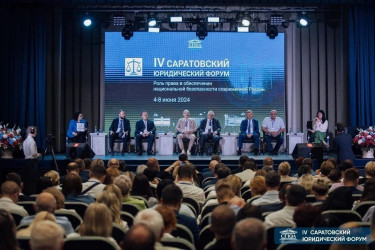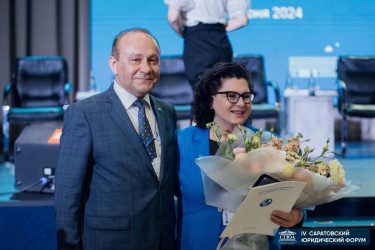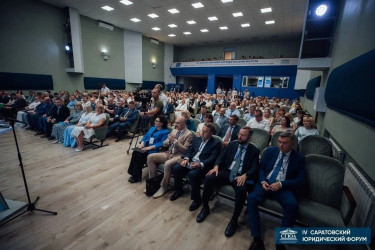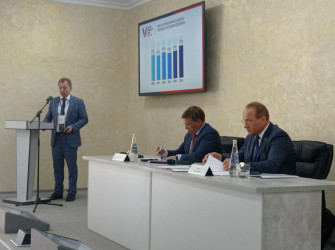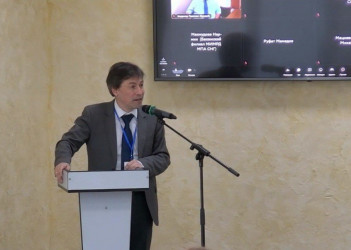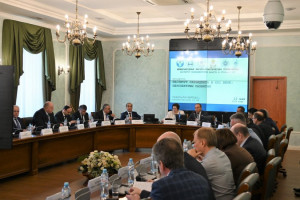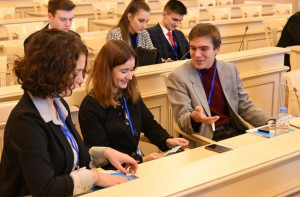Discussion on Electoral Process Security at Saratov Legal Forum
06 June 2024
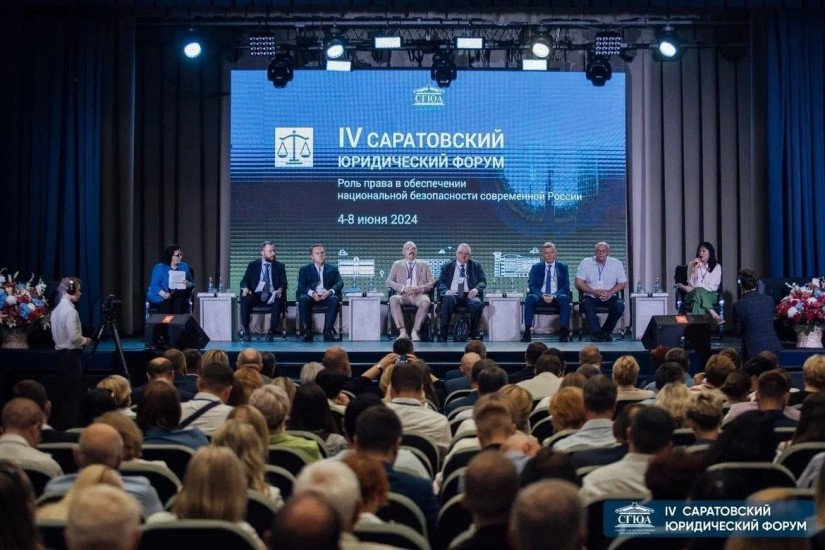
From 5 to 7 June, the IV Legal Forum “The Role of Law in Ensuring National Security of Modern Russia” is held in Saratov, organized by the Saratov State Law Academy.
On 6 June, at the plenary session, Deputy Head of the IPA CIS Council Secretariat – Director of the International Institute for Monitoring the Democracy Development, Parliamentarianism and Suffrage Protection of Citizens of IPA CIS Member Nations (IPA CIS IIMDD), Doctor of Law, Professor Ivan Mushket spoke on behalf of the General Secretary Dmitriy Kobitskiy and emphasized the successful cooperation between the IPA CIS and the Academy, aimed at raising the level of legal culture among young people, including the holding of the International Student Internet Olympiad “Electoral Systems of the World”, the International Olympiad in Humanities and Social Sciences for school students of CIS countries, and the youth electoral school.
During the forum, the academy and the Assembly representatives signed a cooperation agreement, and the rector of the Academy Ekaterina Ilgova was awarded the medal “IPA CIS. 30 years.”
One of the events was a discussion on the security of the electoral process, co-organized by the IPA CIS IIMDD and the Saratov State Law Academy. The meeting continued discussions raised at a seminar in the Tavricheskiy Palace in October 2023. The discussion was led by Ivan Mushket and Head of the Department of International Law at Saratov State Law Academy Dmitriy Krasikov.
Participants noted that during elections and referendums, the political system of the state is most vulnerable. The trust of voters in election organizers, electoral procedures, and their outcomes can be undermined by foreign interference in the state's internal affairs. Protecting the electoral sovereignty of the state requires adherence to the principle of non-interference in national electoral processes.
The objectivity of international observation, based on scientific methodology, helps to uphold this principle, while biased international observation becomes a tool for destructive interference in the activities of state institutions and electoral processes.
Calls for various personal restrictions against international observers aim to discredit the institution of objective observation of electoral processes.
A significant task for states and international intergovernmental structures is to prevent pressure on international observers, who voluntarily participate in monitoring electoral processes, increasing citizens' trust in democratic procedures with their assessments.
Speakers included member of the Central Election Commission of the Russian Federation Igor Borisov, Head of the Department of Theory and History of State and Law at the Pushkin Leningrad State University Roman Romashov, Chair of the Leningrad Region Election Commission Mikhail Lebedinsky, Chair of the Commission of the Civic Chamber of the Russian Federation's on Public Control and Interaction with Citizens Alena Bulgakova, Rector of the University of the Prosecutor's Office of the Russian Federation Igor Matskevich, and Head of the Analytics and Election Monitoring Department of the IPA CIS IIMDD Roman Amburtsev, along with regional election commission leaders, academics, and experts.


